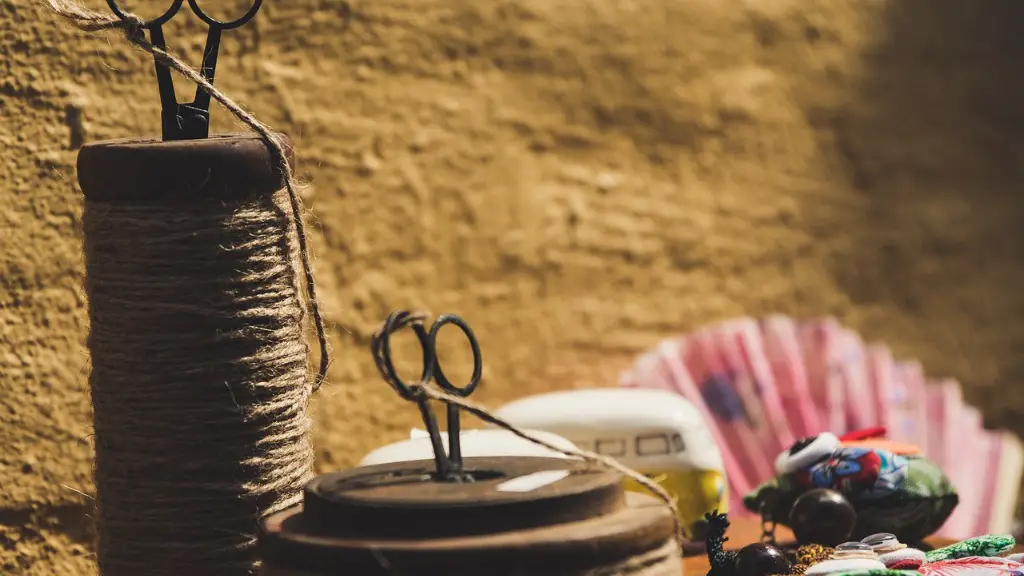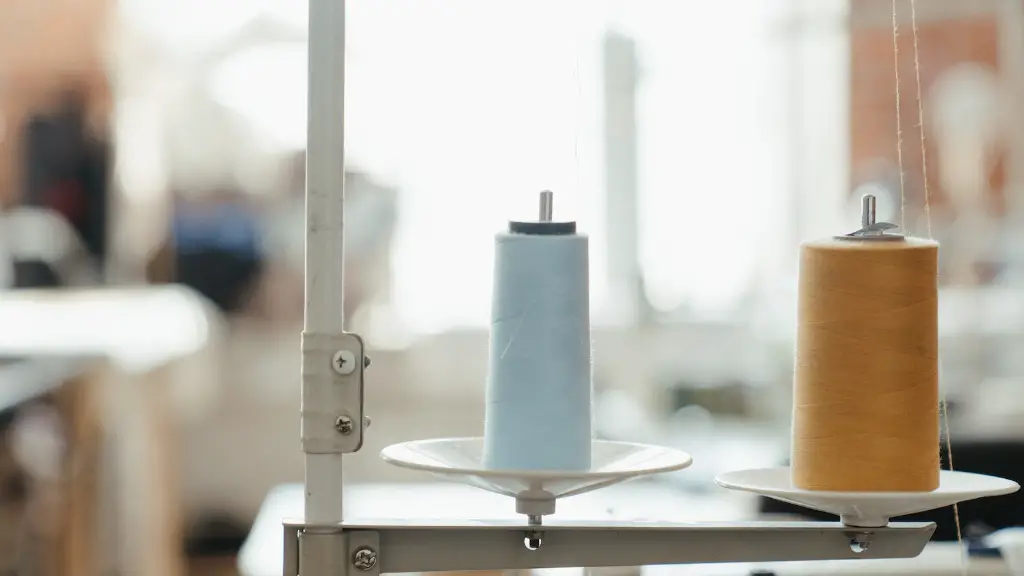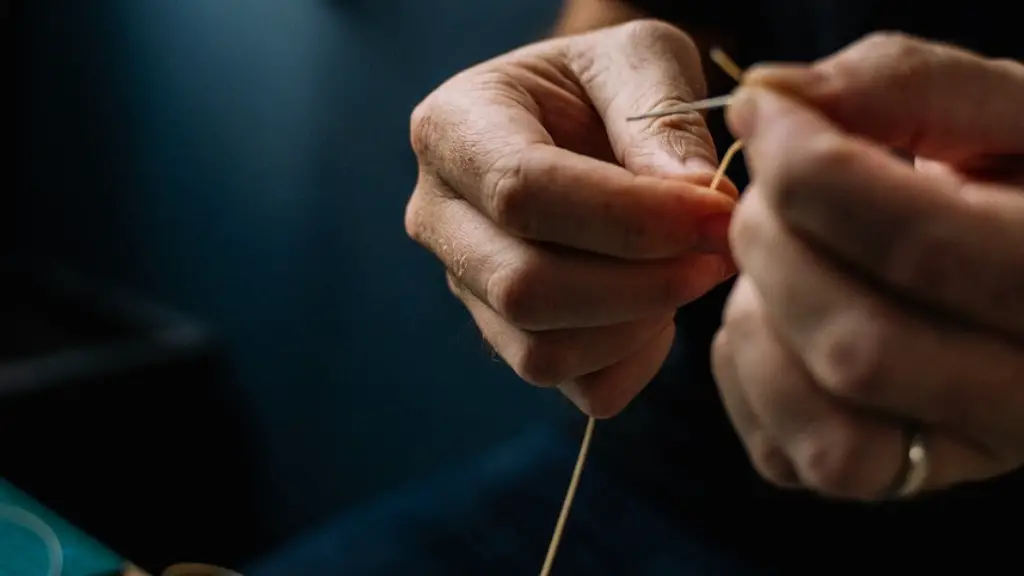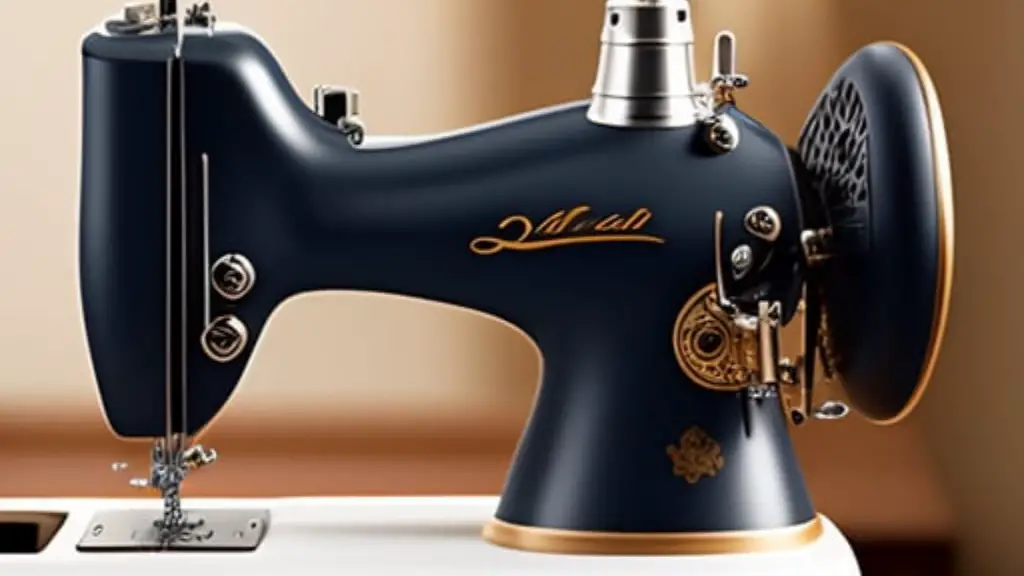Introduction
Industrial sewing machines are used for all kinds of commercial, industrial, and home-based sewing endeavors. The cost of industrial sewing machines varies depending on the type and size of machine that is desired. The cost of an industrial sewing machine also depends on the quality of materials used and the certification that come with the machine. This article will explore the cost of industrial sewing machines to help consumers make the most informed decision when purchasing one.
Start-Up Cost
The start-up cost of a basic industrial sewing machine is relatively steep. Industrial sewing machines have more parts than a traditional home machine, requiring more time, energy, and money to assemble. Additionally, a buyer should also be aware of the accessories and other components that often come with the machine itself, such as sewing thread and needles, tables, motors, and stands, to name a few. This increases the cost of the machine, making the total start-up cost range from around $2,000-$20,000 or even higher.
Maintenance Cost
In addition to the start-up cost, industrial sewing machines will also require maintenance. This includes regular service checkups that should be done at least once a year, as well as regular cleaning and lubrication of the machine parts. Additionlly, parts such as needles, bobbins,etc. may need to be replaced occasionally. All these factors contribute to an estimated annual maintenance cost of $500 – $1000.
Price Range
The price range of an industrial sewing machine may range from a relatively affordable $1000, to an expensive and sophisticated $20,000. Depending on a buyer’s sewing demands, they should choose the machine that best fits their budget range. If a buyer is looking for a commercial-grade machine, they will more than likely have to pay a hefty price. However, if a buyer is looking for a machine to just do some basic repairs or hobby work at home, then it is possible to find an affordable, basic machine within an acceptable price range.
Quality Factors
The quality of an industrial sewing machine is largely determined by the type and material of the machine. Typically, industrial sewing machines that are made of iron, aluminum, or steel are considered to be the best quality. These machines are the most durable and will hold up to the wear and tear of long-term use. Cheaper materials, such as plastic or wood, are not as durable and should only be used for light-duty tasks.
Cost Savings
When buying an industrial sewing machine, there are a few cost saving measures that can be taken. For example, consumers can purchase used machines. This will undoubtedly reduce the cost of the machine. Additionally, purchasing a pre-owned industrial sewing machine can provide the buyer with the assurance that the machine was well-maintained, as well as provide a warranty, if one is available. Furthermore, seeking out good deals from trusted suppliers and manufacturers can help the buyer save even more on their purchase.
Accessories
When buying an industrial sewing machine, one should also consider the cost of additional parts and accessories. The cost of additional parts and accessories can vary considerably. For example, adding a stand and motor can add to the overall cost, whereas a basic machine may come with just the machine head and power cable. Accessories such as needles, bobbins, thread,etc. will also need to be purchased and can add to the cost of ownership.
Conclusion
Industrial sewing machines are more complicated than traditional home machines and, as such, have a higher initial cost of ownership. The cost of an industrial sewing machine is determined largely by the size and materials used, as well as the number of additional parts and accessories. While the cost of an industrial sewing machine may seem high, there are ways for buyers to save on their purchase, such as shopping for pre-owned machines or seeking out deals from trusted suppliers. In the long run, an industrial sewing machine is a worthy investment that will save time, money, and energy when completing sewn projects.
Different Types of Industrial Machines
Industrial sewing machines are available in a wide variety of types, sizes, and styles. The most common types are lockstitch, chainstitch, overlock, embroidery, and coverstitch machines. Each of these types has its own unique features and benefits. Lockstitch machines are the most basic type and are generally the most economical, while chainstitch machines can provide more strength and flexibility. Overlock machines provide a more professional-looking finish and are typically more expensive. Meanwhile, embroidery machines can help create intricate designs and patterns and are often the most expensive type of machine on the market.
Where to Buy an Industrial Machine
When it comes to purchasing an industrial sewing machine, buyers have a number of different options available. Industrial sewing machines can be bought online from trusted brands and suppliers, or from local dealers that specialize in the sale of industrial equipment. Additionally, buyers can also purchase from craft stores, department stores, and secondhand suppliers.
Benefits of Industrial Machines
Industrial sewing machines offer a number of benefits. They can be used for a variety of projects, from simple garments to much more complicated projects. Additionally, industrial machines are typically faster, stronger, and more efficient than standard home machines, allowing for a greater degree of control over sewn projects. Furthermore, industrial machines typically have more features than home machines and last much longer.
Common Problems with Industrial Machines
While industrial sewing machines have numerous benefits, they can also present serious problems. One of the most common issues is that they can require more maintenance than a standard home machine. Additionally, some machines can be prone to jamming or breaking down if they are not used or maintained properly. This is why it is important to ensure that all maintenance and repairs are done on a regular basis. Lastly, industrial machines can be very expensive, with the cost of a new machine potentially running into thousands of dollars.



